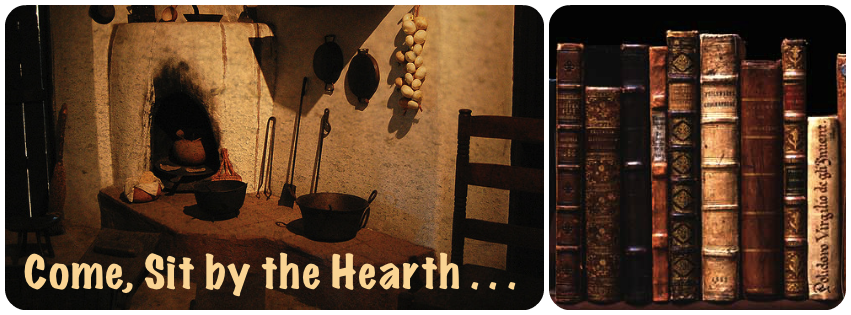
BrainPickings had a post about a book that occupies the little cubby in my slant top desk. I hadn't thought about it in a long time, so I pulled out out and reread it.
Rules of Civility and Decent Behavior in Company and Conversation - George Washington
The Father of our Country, a plagiarist?!? Here are a few gems. (The misspellings are the property of the author.)
22. Shew not yourself glad at the Misfortune of another though he were your enemy.
50. Be not hasty to beleive flying Reports to the Disparag[e]ment of any.
64. Break not a Jest where none take pleasure in mirth Laugh not aloud, nor at all without Occasion, deride no mans Misfortune, tho’ there Seem to be Some cause.
65. Think before you Speak pronounce not imperfectly nor bring ou[t] your Words too hastily but orderly & distinctly.
82. Undertake not what you cannot Perform but be Carefull to keep your Promise.
110. Labour to keep alive in your Breast that Little Spark of Ce[les]tial fire Called Conscience.
Darkness, My Old Friend (audiobook) - Lisa Unger
Is the past really over?
Or does it continue to hold on to us?
2nd Chance (audiobook) - James Patterson
 Volts. Not watts. Don't you just hate that?
Volts. Not watts. Don't you just hate that?
3rd Degree (audiobook) - James Patterson
I knew going into this series that there was danger, but I ignored it.
The series is okay, but not great. I, however, am stuck. I now feel compelled to read them all.
My OCD kicks in at the strangest times.
I read quite a few series, and at least two of them are against my will.
Flatland (audiobook) - Edwin A. Abbott
This was a reread for me. It had been about t*@# years.
This is not a book well suited to audio, or maybe it was the narrator, but I struggled to stay awake and attentive throughout.
Poems of Rumi (audiobook) - Jalaluddin Rumi
I have always enjoyed Rumi's poetry, but this recording irritated me. It was more like a piece of performance art with drums and other instruments. I'm sure that the aim was to evoke a certain atmosphere, but it failed for me. I'll stick to reading Rumi in the future.
A Stone I died
A stone I died and rose again a plant;
A plant I died and rose an animal;
I died an animal and was born a man.
Why should I fear? What have I lost by death?
The Knopf National Poetry Month(TM) Catalog Collection (audiobook) - Various
This anthology sprung from a really great idea for celebrating National Poetry Month. Subscribers were sent a poem a day by email, 30 in all.
Of the thirty poems included, many read by their authors, only four are by women, and several poets had multiple poems included. When you consider the number of poets from which the editors had to choose, this is an incredible lack of variety.
Black Labrador
- David Young
1.
Churchill called his bad visits from depression
a big black dog. We have reversed that, Winston.
We've named him Nemo, no one, a black hole
where light is gulped — invisible by night:
by day, when light licks everything to shine,
a black silk coat ablaze with inky shade.
He's our black lab, wherein mad scientists
concoct excessive energy. It snows,
and he bounds out, inebriate of cold.
The white flakes settle on his back and neck and nose
and make a little universe.
2.
It's best to take God backward; even sideways
He is too much to contemplate, "a deep
but dazzling darkness," as Vaughan says.
And so I let my Nemo-omen lead me
onward and on toward that deep dark I'm meant
to enter, entertain, when my time comes . . .
The day wheels past, a creaky cart. I study
the rippling anthracite that steadies me,
the tar, the glossy licorice, the sable;
and in this snowfall that I should detest,
late March and early April, I'm still rapt
to see his coat so constellated, starred, re-starred,
making a comic cosmos I can love.
The Good old days at Home Sweet Home
- Marge Piercy
On Monday my mother washed.
It was the way of the world,
all those lines of sheets flapping
in the narrow yards of the neighborhood,
the pulleys stretching out second
and third floor windows.
Down in the dank steamy basement,
wash tubs vast and grey, the wringer
sliding between the washer
and each tub. At least every
year she or I caught
a hand in it.
Tuesday my mother ironed.
One iron was the mangle.
She sat at it feeding in towels,
sheets, pillow cases.
The hand ironing began
with my father's underwear.
She ironed his shorts.
She ironed his socks.
She ironed his undershirts.
Then came the shirts,
a half hour to each, the starch
boiling on the stove.
I forgot bluing. I forgot
the props that held up the line
clattering down. I forgot
chasing the pigeons that shat
on her billowing housedresses.
I forgot clothespins in the teeth.
Tuesday my mother ironed my
father's underwear. Wednesday
she mended, darned socks on
a wooden egg. Shined shoes.
Thursday she scrubbed floors.
Put down newspapers to keep
them clean. Friday she
vacuumed, dusted, polished,
scraped, waxed, pummeled.
How did you become a feminist
interviewers always ask,
as if to say, when did this
rare virus attack your brain?
It could have been Sunday
when she washed the windows,
Thursday when she burned
the trash, bought groceries
hauling the heavy bags home.
It could have been any day
she did again and again what
time and dust obliterated
at once until stroke broke
her open. I think it was Tuesday
when she ironed my father's shorts.
The Pyramid (audiobook) - Henning Mankell
I don't know if it's a tribute to Mr. Mankell's powers of description, the interpretation of those responsible for the TV series, or the acting chops of Kenneth Branagh, but as I listened to these stories I was transported to the same dreary, grey world I saw on television.
I have to be honest here. The plots of Mankell's stories are quite good, but poor Kurt Wallander lives in a bleak, cold world, indeed. The scenery around him more than matches the landscape within.







No comments:
Post a Comment